Two years ago, we compiled a similar list of legislators to watch. Now we’re doing it again. Here are a dozen state lawmakers, equally divided between Republicans and Democrats, who are considered players by political experts in state capitals across the country.
As was the case with the first list, there are scores of noble and noteworthy lawmakers in state government right now. This list in particular includes legislators who have shown a keen ability to strike alliances across party lines, or who have racked up significant accomplishments during their time in office so far. Each of these lawmakers has a compelling personal story that informs the way he or she governs. And many of these state representatives and senators could soon win higher office.
The 12 legislators to watch, listed in alphabetical order, follow.
Brendan F. Boyle, Pennsylvania House (D)

Boyle, elected to the House in 2008, grew up in a Philadelphia row house as the son of a crossing guard and a maintenance custodian who emigrated from Ireland at 19. Boyle, the first in his family to attend college, earned an undergraduate degree from the University of Notre Dame, where he also worked as a sportscaster. He later earned a master’s degree from Harvard’s Kennedy School of Government and worked as a management consultant for the Naval Sea Systems Command and the Military Sealift Command. In the state House, Boyle has styled himself a champion of labor unions. Last August, he gained attention for a bill that would give free tuition at state universities in exchange for a share of future earnings. Boyle has served as chairman of the House Democratic Campaign Committee and recently threw his hat into the ring for a competitive 2014 primary for the U.S. House seat being vacated by gubernatorial candidate Allyson Schwartz. Boyle’s brother, Kevin, also serves in the state House from a neighboring district.
Marcus Brandon, North Carolina House (D)

Brandon is a young, openly gay African-American in a Southern, increasingly conservative state. Elected to the House in 2010 by beating a Democratic incumbent in a primary, he’s won praise from conservatives for his stance on education reform. His interest in education policy stems from a childhood diagnosis of attention deficit hyperactivity disorder, and disappointment with the opportunities he was offered in public schools. Brandon was a key backer of a private school voucher bill that passed the chamber in 2013; he’s also spoken out against allowing vouchers to be used at schools that discriminate against gay students. Brandon says he will run for the U.S. House seat that has been vacated by Democrat Mel Watt. Watt is President Obama’s choice to head the Federal Housing Finance Agency; he was confirmed in December.

Anne Almasy
Jason Carter, Georgia Senate (D)
Carter, the grandson of former President Jimmy Carter, is challenging Republican incumbent Nathan Deal in this year’s gubernatorial election. Carter attended Duke University and earned a law degree from the University of Georgia. He was also a Peace Corps volunteer in South Africa and later wrote a book about it titled Power Lines: Two Years on South Africa’s Borders. Carter was elected in 2010 and quickly took a lead role on legislation to overhaul the HOPE scholarship, which sends qualified high school graduates to college in Georgia. While the Democrats have little leverage as the minority party, Carter helped his fellow legislators force concessions on legislation that ensures access to education for poorer rural students. His campaign for governor in 2014, while an uphill battle in a solidly Republican state, has shaken up what was expected to have been an easy re-election bid for Deal. (Wikipedia)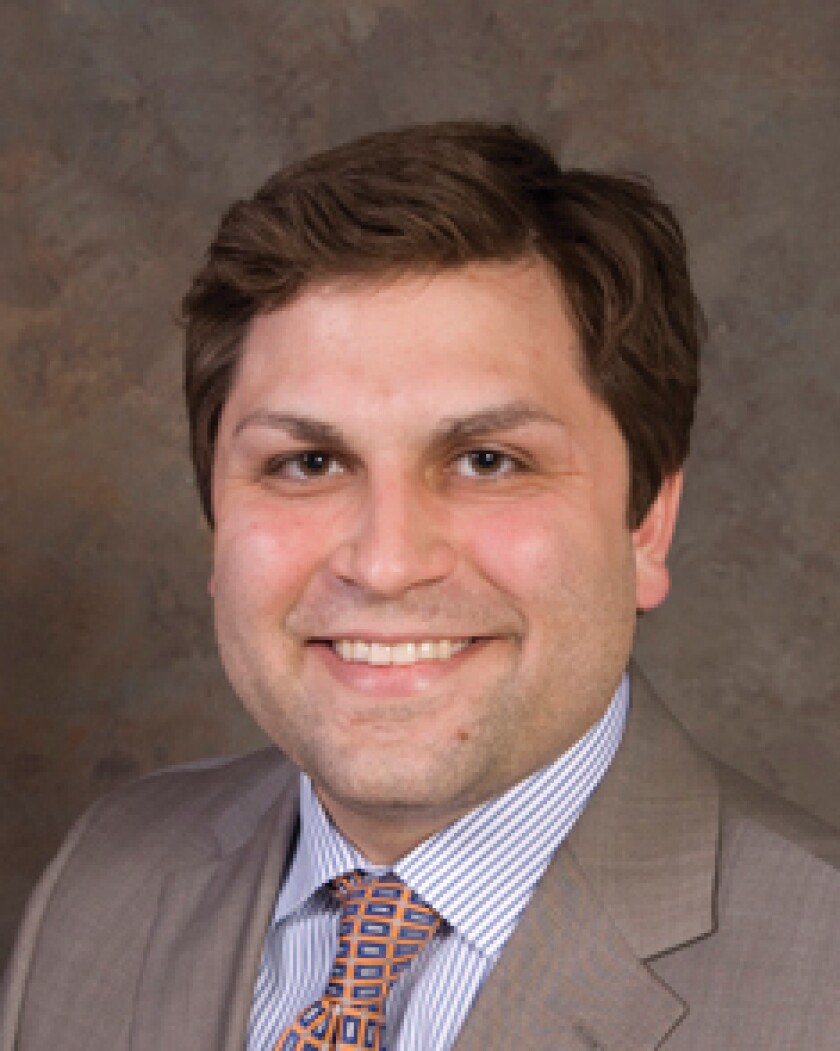
Jonathan Dismang, Arkansas Senate (R)
Dismang, the president pro tem of the Arkansas Senate, was elected in 2010 after serving in the House for a term. He was a key player in the creation of the “private option”—an innovative compromise that enabled the expansion of Medicaid under Obamacare in a solidly red state that has a Democratic governor and a Republican legislature. He’s a possible contender for a U.S. House seat in 2014. (OpenStates.org)Mike Fleck, Pennsylvania House (R)
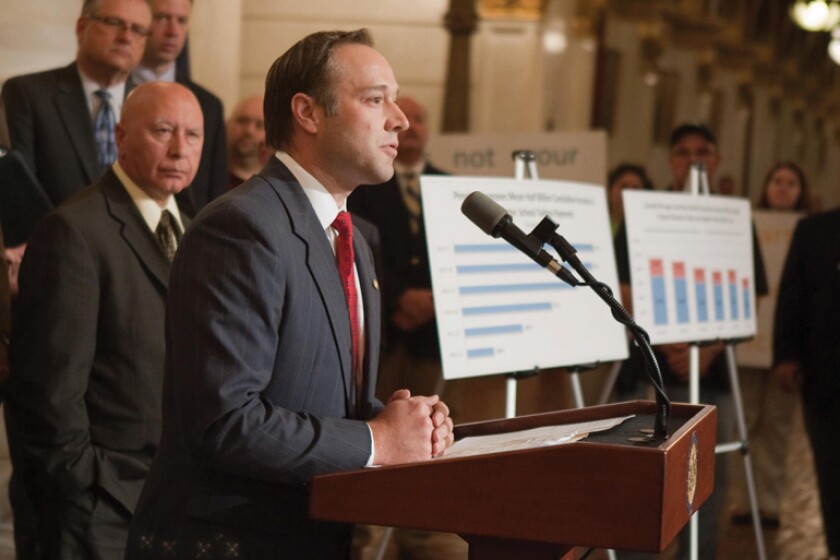
Fleck was first elected to the state House in 2006 from a rural, conservative district west of Harrisburg. An Eagle Scout and later a Boy Scouts official, Fleck earned a bachelor’s degree from Liberty University. His family has farmed and hunted in the district for generations. He’s focused on agriculture and tourism, and has secured bipartisan support for efforts to prohibit privatizing health services at state correctional facilities (his district includes two of them). He has also been very active in seeking to increase oversight of publicly funded charter schools. In 2012, he made headlines when he announced he was gay. After being easily re-elected multiple times, Fleck is now facing primary opposition. “Coming out is hard enough, but doing it in the public eye is definitely something I never anticipated,” he told the Huntingdon Daily News.

Marilinda Garcia, New Hampshire House (R)
Garcia, the daughter of an Italian-American mother and a Spanish-American father, graduated jointly from Tufts University and the New England Conservatory of Music (she plays the harp). She later earned a master’s degree from Harvard’s Kennedy School of Government. Garcia won her seat in 2006 at the age of 23. She has been active on casino legislation and has served on the board of Americans by Choice, a pro-immigration reform group. She is being discussed as a possible challenger to Democratic U.S. Rep. Ann McLane Kuster. (Elect-Mari.com)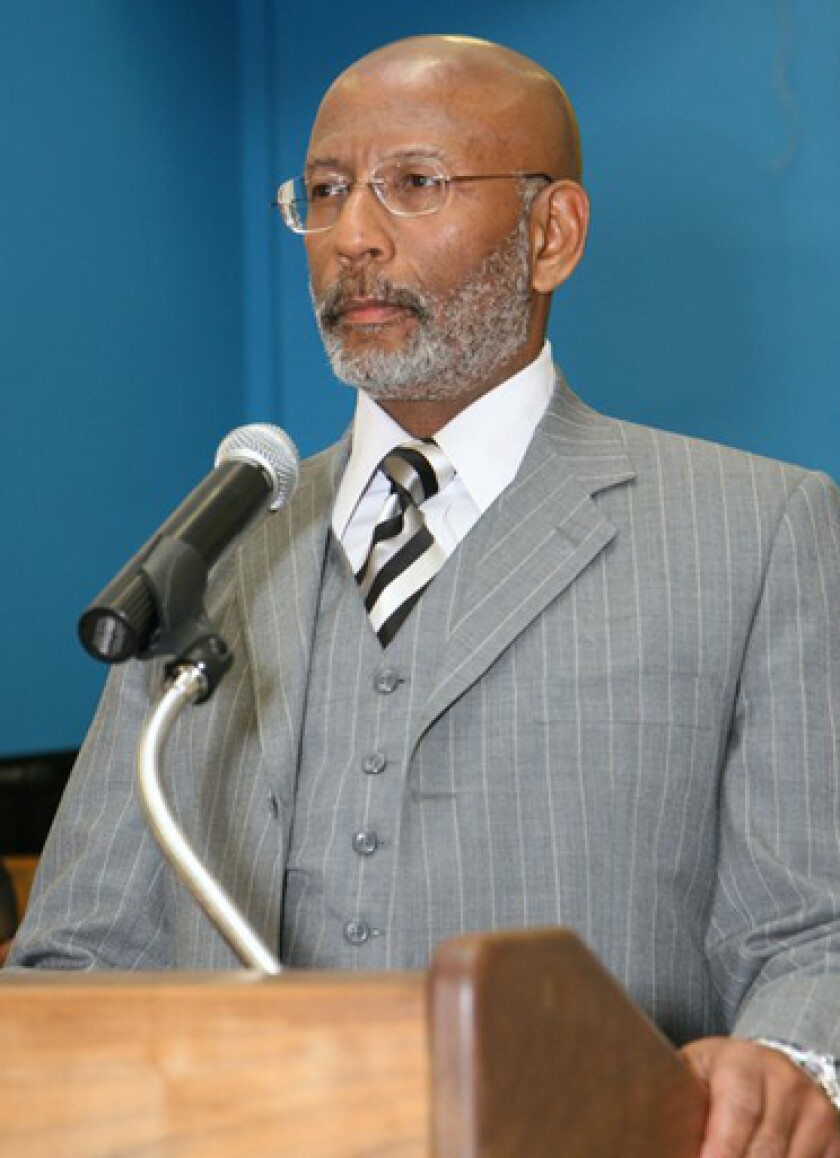
Elbert Guillory, Louisiana Senate (R)
Guillory, a once-obscure African-American lawyer from Opelousas, attracted national attention for a video in which he seeks to drive a wedge between African-Americans such as himself and the Democratic Party. “Liberalism has nearly destroyed black America,” Guillory said in the video that went viral, titled “Why I am a Republican.” “And now it’s time for black America to return the favor.” Guillory has decried “abortion on demand” and “dependency over self-reliance.” He switched parties in 2008 to run as a Democrat for a majority-minority state Senate district and subsequently switched back to the Republican Party after he won. He is the state’s first black Republican senator since Reconstruction, and works closely with GOP Gov. Bobby Jindal. Guillory is not a sure bet to win re-election to the Senate, but he’s considered likely to run for lieutenant governor in 2015. (Elbert Guillory's Facebook page)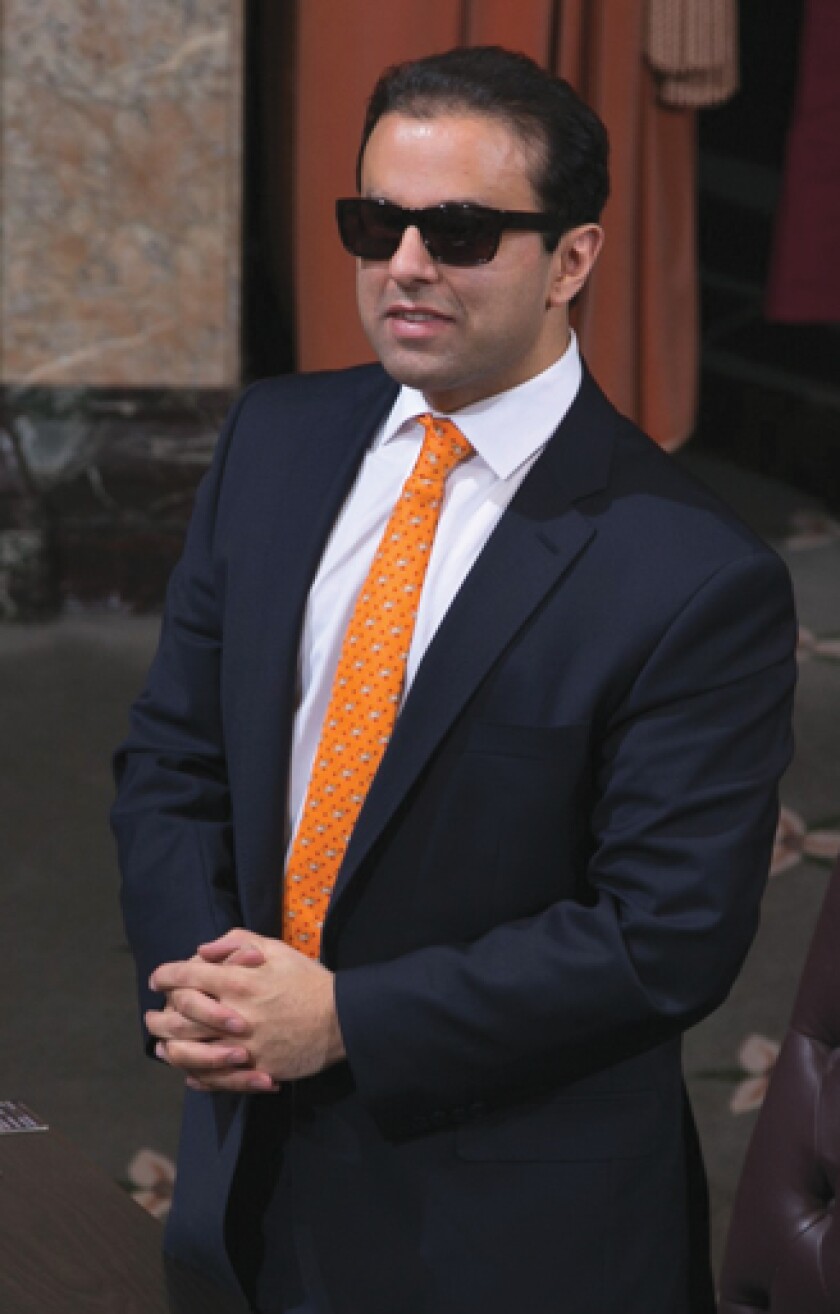
Cyrus Habib, Washington House (D)
Habib, believed to be the country’s first and only Iranian-American state legislator, lost his sight when he was 8 due to a rare form of cancer of the retina. Yet he became a black belt in karate, a jazz pianist and a Rhodes scholar before earning a law degree at Yale and practicing for a prominent Seattle law firm. Habib is an expert in tech startups, and as vice chair of the Technology and Economic Development Committee, he has worked with Republicans on that issue. (HouseDemocrats.wa.gov)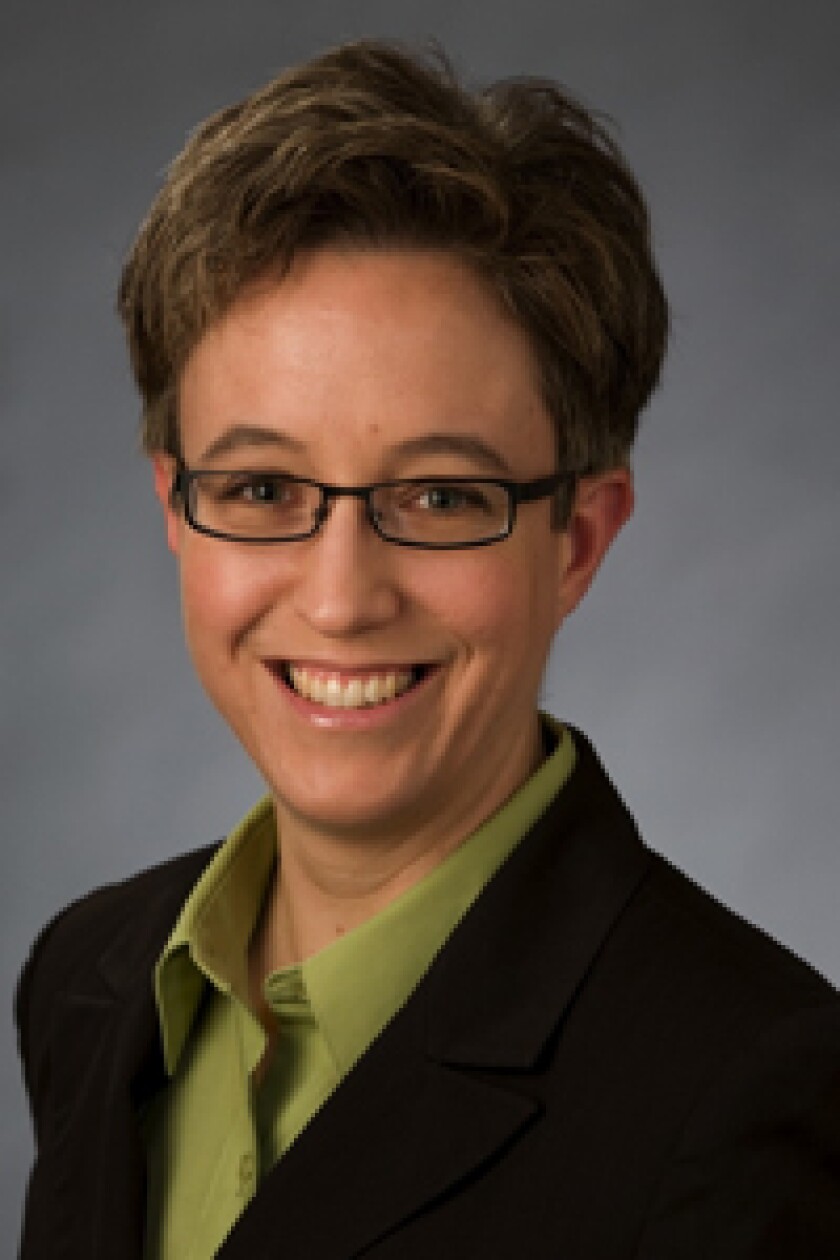
Tina Kotek, Oregon House (D)
After toppling her party’s leader and then leading her party to the majority, Kotek became the nation’s first lesbian House speaker in 2013. Kotek cut her teeth as an advocate for the poor, working first at the Oregon Food Bank and then Children First for Oregon. She won her House seat in 2006. During her tenure, Kotek has helped pass a statewide menu labeling bill, restrictions on the use of credit history in hiring and continued funding for the Temporary Assistance for Needy Families program. (Office of House Speaker Tina Kotek)
Frank LaRose, Ohio Senate (R)
LaRose is an Eagle Scout turned Green Beret who served with distinction in Iraq. In 2010, he won his seat in a competitive race—his first elected office—after knocking on more than 25,000 doors. LaRose has worked with Democrats on a redistricting measure that won Senate approval with just one “no” vote, and has started an informal effort to increase civility between Republicans and Democrats in the legislature. (OhioSenate.gov/LaRose)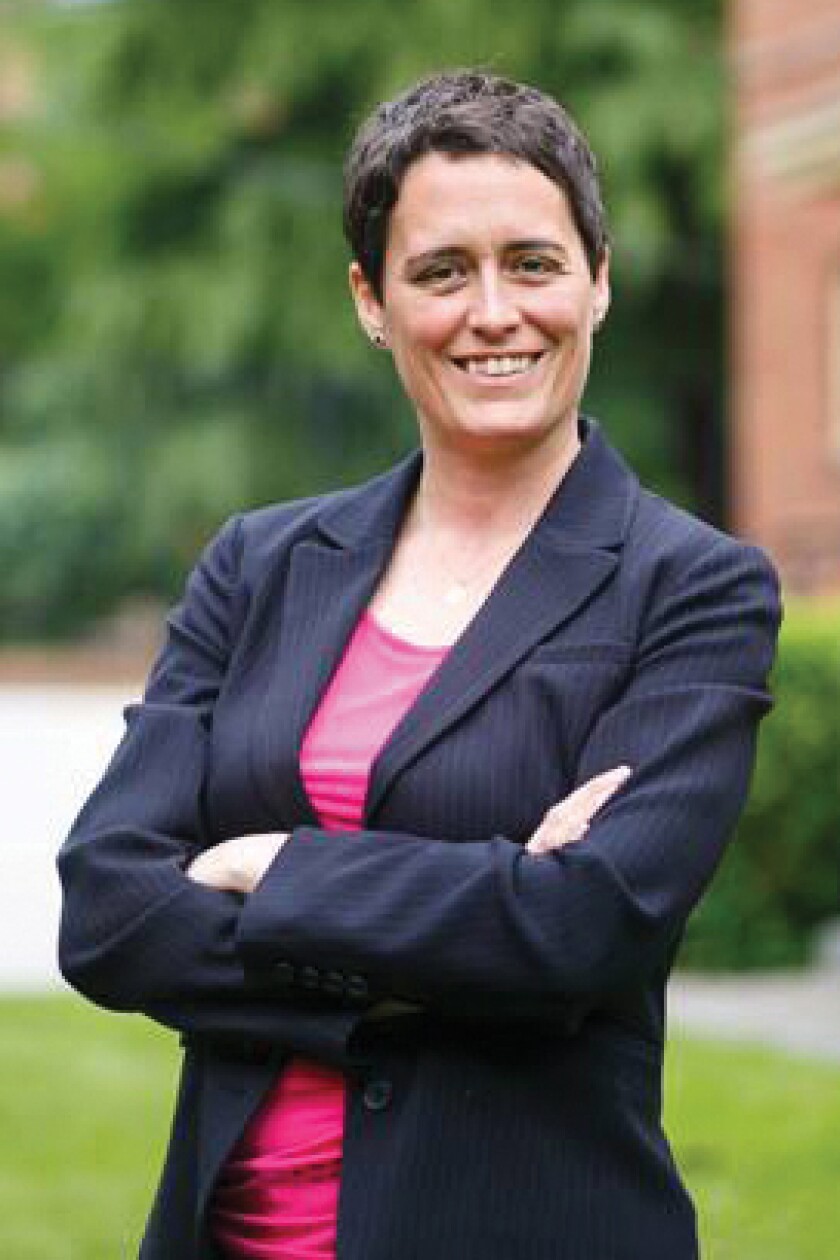
Heather Mizeur, Maryland House (D)
Mizeur won her seat in the state House in 2006 following a competitive primary. But even before that, she had established a national profile for herself among Democrats. From 2003 to 2006, Mizeur held senior policy and campaign positions with then-Massachusetts Sen. John Kerry, who was the Democratic presidential nominee in 2004. (She has also been tapped by President Obama to join the Democratic National Committee’s executive committee.) In the legislature, she has played a key role passing measures on same-sex marriage (Mizeur is a lesbian) and on expanding health care to children and family planning services to help low-income women. Mizeur, who’s running for governor in a tough primary battle in 2014, has proposed legalizing marijuana in the state and using the tax revenue from that to fund pre-K education. (Heather Mizeur for Maryland)T.W. Shannon, Oklahoma House (R)
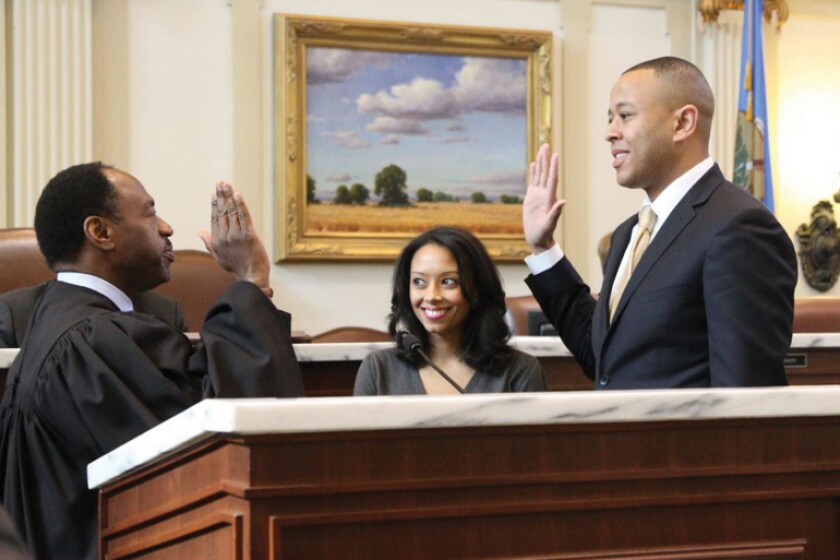
Shannon is the first African-American Republican state House speaker in the nation since Reconstruction. Shannon is of Chickasaw ancestry. He has served as chief administrative officer for Chickasaw Nation Enterprises and worked for former U.S. Rep. J.C. Watts, a fellow African-American Republican, and for U.S. Rep. Tom Cole. Shannon served as deputy majority whip during his first term and was chair of the transportation committee during his second term prior to winning the speakership. He has championed an overhaul of Oklahoma’s workers’ compensation system, backed tax cuts on natural gas and promoted the liquidation of excess state properties.









